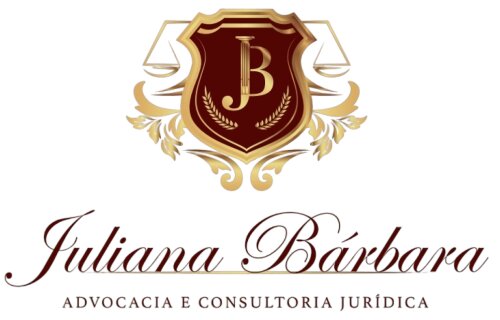Best Commercial Real Estate Lawyers in Brazil
Share your needs with us, get contacted by law firms.
Free. Takes 2 min.
Free Guide to Hiring a Real Estate Lawyer
Or refine your search by selecting a city:
List of the best lawyers in Brazil
About Commercial Real Estate Law in Brazil
Commercial Real Estate in Brazil is a robust and dynamic sector, reflecting both the diversity and complexity of the country's economic landscape. This field encompasses a wide range of transactions, including the leasing, buying, selling, and financing of properties that are used for business purposes. It's governed by a combination of federal, state, and municipal laws, which means navigating this area often requires specialized legal knowledge. The Brazilian civil law system features comprehensive regulations on property rights, ensuring clear guidelines for the use, development, and transaction of commercial properties.
Why You May Need a Lawyer
A lawyer with expertise in Commercial Real Estate can provide invaluable assistance in several situations:
- Conducting due diligence before purchasing or leasing a property to identify any legal issues, such as liens, zoning restrictions, or environmental concerns.
- Drafting or reviewing contracts to ensure they are legally sound and protect your interests.
- Navigating complex legal requirements for real estate transactions, including registration and compliance with local zoning laws.
- Resolving disputes with tenants, landlords, or other parties regarding property use or lease agreements.
- Facilitating negotiations and mediations to resolve conflicts without litigation.
Local Laws Overview
The legal framework governing commercial real estate in Brazil includes several vital aspects:
- The Civil Code: Governs property rights and obligations related to real estate.
- The Real Estate Lease Law: Specifically regulates lease agreements, including terms and conditions, renewals, and termination.
- The City Statute: Establishes the guidelines for urban development and zoning, affecting how properties can be used.
- The Environmental Law: Protects natural resources and may impose restrictions on property use and development.
- Tax Regulations: Determine the applicable taxes for transactions and property ownership, such as the ITBI (Tax on Transfer of Real Estate).
Frequently Asked Questions
What documents do I need to purchase a commercial property in Brazil?
You'll need an identification document, proof of address, a taxpayer registration number (CPF/CNPJ), and financial documentation. The seller must provide property registration and clearance certificates.
How is rent negotiated in commercial leases?
Rent is usually negotiated based on the market value, location, and characteristics of the property. Lease terms and rent adjustments are also agreed upon during negotiations and formalized in the lease agreement.
What is due diligence in a real estate transaction?
Due diligence involves investigating a property's legal status, verifying ownership, checking for debts or encumbrances, ensuring compliance with zoning laws, and assessing any environmental liabilities before completing a transaction.
Who pays for transfer taxes in Brazil?
Typically, the buyer is responsible for paying the transfer tax (ITBI), which varies by municipality but is generally based on the property's assessed value.
Can a foreigner own commercial property in Brazil?
Yes, foreigners can own commercial property in Brazil with few restrictions, although there are limitations in certain border areas and rural properties.
What happens if a tenant breaches a commercial lease agreement?
The landlord can seek remedies such as contract termination, seeking damages, or eviction in accordance with the terms of the lease and Brazilian law.
Are there restrictions on converting residential property to commercial use?
Yes, you must comply with zoning regulations and obtain municipal approval to change a property's designated use from residential to commercial.
What is the role of a public notary in real estate transactions?
Public notaries in Brazil are crucial for formalizing real estate transactions, as they certify documents, ensure legal compliance, and facilitate property registration.
How can I resolve a property dispute without going to court?
Consider alternative dispute resolution methods such as mediation or arbitration, which can be quicker and less costly than litigation.
What are common challenges in commercial real estate development?
Common challenges include navigating complex regulatory environments, securing financing, managing construction risks, and ensuring compliance with environmental and zoning laws.
Additional Resources
If you need more guidance, consider reaching out to these resources:
- CRECI: The Regional Council of Real Estate provides licensing and oversight for real estate professionals in Brazil.
- Ministry of Cities: Offers insights into urban development regulations and housing policies.
- Brazilian Institute of Real Estate Studies: A research organization focusing on trends and regulations affecting real estate.
- Local Bar Associations: Can provide referrals to lawyers specializing in commercial real estate.
Next Steps
If you need legal assistance in commercial real estate, consider taking the following steps:
- Define Your Needs: Clearly outline your objectives and the type of property transaction or issue you're facing.
- Research Potential Lawyers: Look for experienced attorneys with a track record in Brazilian commercial real estate who can handle your specific legal needs.
- Schedule Consultations: Meet with several lawyers to discuss your case, understand their approach, and assess their fees.
- Review Engagement Terms: Before hiring, review and negotiate the terms of engagement with your chosen lawyer to ensure clarity on services and costs.
- Stay Informed: Maintain open communication with your lawyer and stay informed about the progress and legal nuances of your case.
Lawzana helps you find the best lawyers and law firms in Brazil through a curated and pre-screened list of qualified legal professionals. Our platform offers rankings and detailed profiles of attorneys and law firms, allowing you to compare based on practice areas, including Commercial Real Estate, experience, and client feedback.
Each profile includes a description of the firm's areas of practice, client reviews, team members and partners, year of establishment, spoken languages, office locations, contact information, social media presence, and any published articles or resources. Most firms on our platform speak English and are experienced in both local and international legal matters.
Get a quote from top-rated law firms in Brazil — quickly, securely, and without unnecessary hassle.
Disclaimer:
The information provided on this page is for general informational purposes only and does not constitute legal advice. While we strive to ensure the accuracy and relevance of the content, legal information may change over time, and interpretations of the law can vary. You should always consult with a qualified legal professional for advice specific to your situation.
We disclaim all liability for actions taken or not taken based on the content of this page. If you believe any information is incorrect or outdated, please contact us, and we will review and update it where appropriate.
Browse commercial real estate law firms by city in Brazil
Refine your search by selecting a city.













